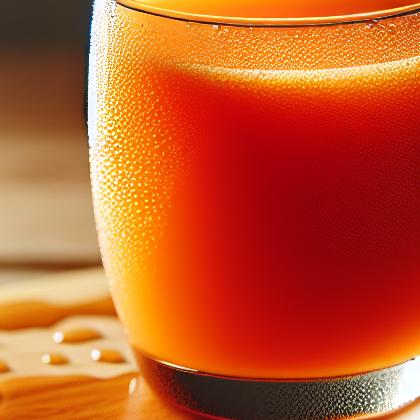Showing results for 'Carrot juice'
close
Carrot Juice

Juice is a liquid (drink) that is naturally contained in fruit and vegetables. It can also refer to liquids that are flavored with these or other biological food sources such as meat and seafood. It is commonly consumed as a beverage or used as an ingredient or flavoring in foods. It is also a common practice to mix juices of different fruits/vegetables. Juice did not emerge as a popular beverage choice until the development of pasteurization methods allowed for the preservation of juice without fermentation. In this case juice of carrot
Carrot juice Pairs With:
Food Item
Flavor Affinity Level

Did you know there are 53 food flavor pairings in my database for Carrot Juice available. What you are seeing above is a random list of 30 items which pair with Carrot Juice.
For the entire list, beautifully formatted, enter your email address and click the download button below, then I'll email it to you as a PDF.
Carrot juice Properties:
| Food Property | Type | Description |
|---|---|---|
| Flavor Profile | Sweet | Carrot juice has a naturally sweet flavor due to the high sugar content in carrots. |
| Sour | Carrot juice may have a slightly tangy or sour taste depending on the freshness of the carrots. | |
| Texture | Moisture | Carrot juice has a high moisture content, resulting in a smooth and liquid consistency. |
| Nutritional Value | Macronutrients | Carrot juice is rich in carbohydrates, mainly in the form of natural sugars from the carrots. |
| Micronutrients | Carrot juice is a good source of vitamins and minerals, including vitamin A, vitamin K, and potassium. | |
| Fiber | Carrot juice contains some dietary fiber, although not as much as whole carrots. | |
| Color | Natural Pigments | Carrot juice is known for its vibrant orange color, which comes from natural pigments called carotenoids. |
| Aroma | Volatile Compounds | Carrot juice may have a fresh and earthy aroma due to volatile compounds present in the carrots. |
| Chemical Composition | Acidity/Alkalinity (pH) | Carrot juice tends to be slightly acidic, with a pH level below 7. |
| Cooking Behavior | Heat Conductivity | Carrot juice can be heated easily and quickly due to its high water content. |
Food Pairing App - Version 1.2.0
